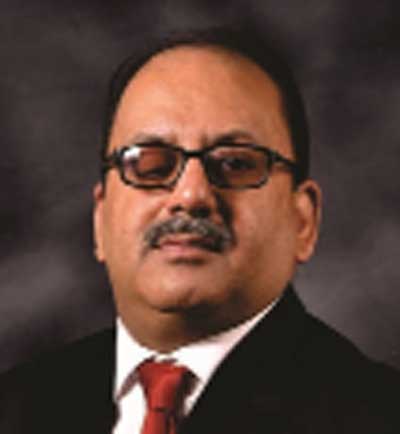The unnoticed efforts sometimes turn out to be national pride and raise the name of the community in international circles. Nothing like the unnoticed victories in the field of sports leaves as great impact as that of Arshad Nadeem these days. Hailing from some unassuming town, Mian Channu, his rise to Olympian javelin thrower is nothing less than a phenomenon but a well-discretionary moment across the community.
Surprisingly, a hero like Arshad, who could ill afford the luxury of formal training and state-of-the-art facilities, groomed himself under local mentors – pure determination, driven and driven by an unflinching belief in his abilities. His success at the Tokyo 2020 Olympics, competing against the world’s best, stands as a witness to how much untapped potential is submerged within the informal training systems of Pakistan.
Arshad’s story is not an isolated one. The country has a number of Arshads but they are unobserved, overlooked, underestimated and underrated. In fact, Pakistan, overall, has been able to produce people in different fields who have created names at national and international levels without any professional training. There is a long list of unsung heroes, from Naseem Hameed, the fastest woman of South Asia in 2010, to Hussain Shah, the boxing bronze medalist of the 1988 Seoul Olympics, to Sohail Abbas, the highest goal-scorer in the field hockey in the world – just to mention a few. Their greatness was honed in systems devoid of conventional coaching but abounding in the traditional “Ustad-Shagird” relationship. The concept is firmly grounded in Pakistan’s cultural and vocational training history because it focuses on inculcation through perfuming, apprenticeship, and intimate relationships in skill transfer.
It would be shocking that national exchequer is being handsomely fed with the help of informal economy. By rough estimates, the informal economy in Pakistan contributes around 35% to 40% to the GDP of the country. Given Pakistan’s GDP of about $377 billion in 2023 and roughly $390 to $400 billion for 2024, this comes out to approximately $132 to $151 billion per year. As seen from this massive contribution, the informal sector has been playing a vital role by providing tremendous support to the economy of Pakistan.
Hence, countries like Brazil, Mexico, and Turkey have proved a game-changer with the help of an informal economy. Such countries have an extended informal sector that plays a significant role in employment and earning. Brazil and Mexico also have large dependence upon informal employment to hold up the structures of their economies. Turkey’s informal sector contributes to a huge number of jobs, mainly related to smaller enterprises. Furthermore, in Nigeria, Indonesia, and South Africa, there exists a very substantial informal economy that normally contributes a lot to the general economy of these countries. This makes the sector very important in the livelihood of so many people and helps a lot in sustaining the economies of these countries.
TVET is very imperative in the fast-growing global economy today. At a time when industries move towards more specialized and technical skill sets, the demand for a proficient but agile workforce has never been higher. Germany and South Korea, countries boasting robust TVET systems, benefited from such investment in economic growth and low unemployment rates. This is the sector where mismatches between skills and the improvement of employability can be worked out to drive innovation.
The real key to economic prosperity for Pakistan and its youth bulge is the TVET sector. According to the latest population data from the Pakistan Bureau of Statistics, youth standing between the active ages of 15 to 29 are about 27% to 30% of the total population. They could be a potential huge economic dividend if their investments are well harnessed. However, there is a challenge to bridge the gap between skills taught in their institutions and what the labor market wants. The informal system of “Ustad-Shagird” has shown that traditional methods may be very successful, but it is necessary to integrate them into the formal TVET programs so that the young may be endowed with modern skills, in addition to the values of hard work and perseverance learned on a practical basis.
Any kind of reform in TVET in Pakistan shall be multiple in nature, recognizing the formal as well as the informal training systems. Induction of the formal education framework on the traditional pattern of “Ustad-Shagird” as a starter would have to sink the gap between the ancient methods and modern requirements. It will result in certification for skills learned through apprenticeships and increased job market recognition.
Also important is the need to establish robust public-private partnerships that secure the collaborative purpose between government, private industries, and educational institutions, which can help to keep the TVET curricula relevant in the light of the rapidly changing industry needs, so that the graduates acquire employable skills.
Further, investment needs to focus on infrastructure modernization in upgrading, as much as possible, the training facilities with sophisticated equipment and digital tools that will give the student the exact feel of a real-world situation. In addition, professional development opportunities for TVET instructors are equally important.
To train teachers regularly would help them learn sophisticated technical information and innovative teaching methodologies that would create an environment of critical thinking and creativity. Last, the perception within society regarding vocational training should be changed accordingly. The element of vocational education could be modified to a privileged and desired career for many youth through improved success stories, such as that of Arshad Nadeem.
Development largely contributes to the reduction of poverty by developing human capital through education and skills. TVET programs, if well-designed and executed, offer great opportunities for breaking this vicious cycle of poverty by providing underprivileged people with practical and relevant skills to acquire decent jobs.
Recent studies like the 2022 World Bank Report on Poverty and Equity indicate that countries that have comprehensive vocational training systems have less poverty and a more decent income distribution. GIZ, JIKA, UNHCR, TIKA, etc., are some of the game-changer sectors in this scenario. In this situation, the development sector has to emphasize TVET inclusiveness with a distinct focus on women and rural areas of Pakistan. This might include special activities aimed at the target group terms of financing, scholarships, mentorship programs for the needy ones.
Pakistan’s youth is its biggest asset, number 5th, and 64% around the globe which signals toward a potential demographic dividend which can push the economic growth trail. The potential can be converted only if young people are skilled and given the right opportunities. The UNDP Human Development Report 2023-24 places the country at a low HDI value of 0.540 and a ranking of 164 out of 193, underlining why new and urgent action is required in education and skill development. Focusing and roping in formal education, vocational training, and entrepreneurship programs are mandated to be taken up and integrated to empower the youth. The encouragement of youth in this developmental stage towards entrepreneurship can open ways for new employment opportunities with innovation and further potentiates economic development.
The repertoire of individuals like Arshad Nadeem epitomizes the many others for their informal training systems to be acknowledged and integrated into the larger informal framework in Pakistan. It will capitalize on the strengths of the “Ustad-Shagird” system and strengthen the formal TVET sector so that Pakistan can field a globally relevant and competitive workforce that will help in helping to alleviate poverty to the maximum extent possible and yield maximum economic dividends from its youth.
Civil society, government, and private sectors have to come together in building an everlasting, all-inclusive TVET system for long-term economic growth and social development. It will not only do justice to the reservoir of rich tradition of mentorship and hands-on learning that Pakistan has in the past but also help place the country on a track towards prosperity in the new 21st century global economy.




